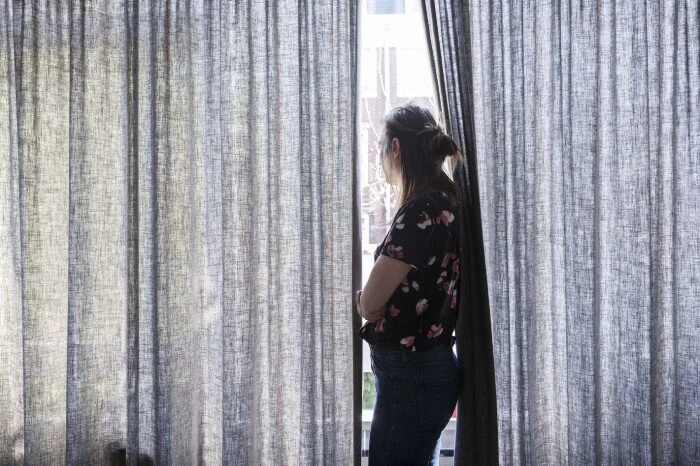Listen to What Your Jealousy Is Telling You
he first time grief triggered my jealousy was during my freshman year of high school. I was at my locker, packing up my books to take home for the weekend, when my locker mate Val asked, “So, what are you doing for Mother’s Day this weekend?”
“I… I, umm, I’m going to give my grandmother a card, and then I’ll go to the cemetery to visit my mom.”
A poignant silence followed. She nodded, then politely removed herself from the conversation, while I stood there sagging beneath the weight of my textbooks and my loss.
Starting high school is hard enough. But it’s a special kind of hell when you go to an all-girls high school, your mom has died, and you’re suddenly hyperaware of the fact that everyone but you seems to have such a special relationship with their mothers. I had spent that whole week feeling sad and extremely jealous, and I’d go on to spend all weekend with an added layer on top: feeling sad about not having a mom, jealous of those who did, and guilty about how jealous they made me.
The guilt was an inextricable part of it. I grew up in a Catholic family and a Catholic school system, both of which taught me that “jealousy” was synonymous with “coveting,” and that coveting was a very bad thing. On those days when my jealousy reared its head, I often felt like I was sinning multiple times over: by being jealous in the first place, and then by either admitting I was jealous or choosing to lie about it. Being open about the feeling or hiding it — neither felt like a good option.
My jealousy hasn’t gone away. But at 28 years old, I’m at a different place with it. After years of living with it and processing it, here’s what I think now: Jealousy is a road map to peace of mind.
We think of jealousy as a negative character trait, but really, it’s the most honest and vulnerable parts of ourselves asking to be heard. Jealousy itself is not negative. It’s a normal, knee-jerk reaction to feeling something. Our reaction to that jealousy is a better indicator of where we are mentally and how we can grow.
Take me: I’m jealous because I notice a gap in my own life — the physical absence of a mom, the nuanced byproduct of having lost mine so young. My jealousy tells me I need to get creative in order to not get bitter.
When I was 14 years old, my jealousy was telling me I wished I had my maternal figure during a transitional point in my life. If I’d had the support system or the wherewithal, I could have taken it as a cue to turn to someone else for comfort or guidance. Instead, I just soldiered on, and it severely affected my mental health in ways I didn’t start unpacking until I began therapy. Ignoring my jealousy killed my trust in myself and my own intuition and kept me from seeking out what might have helped me.
But I’ve slowly made peace with the fact that my jealousy will always be a part of me. I’ve started finding solace in this envy. Lately, for example, I’ve been feeling jealous of those who have childhood homes they can go back to. I wish my boyfriend and I and our dog could go see my mom and have her fold us into her home while we figured out the next steps of our lives.
There’s a comforting sense of agency that comes with that: It has helped me figure out what I want to provide for myself in the future. I’m looking, it seems, for safety and belonging. And I know there’s a lot I can do to give myself (and my little family) those things.
There’s little any of us can do about grief and jealousy other than acknowledge them as a part of being human and listen to what they’re telling us. Don’t think of jealousy as an ugly monster to be conquered or locked away. Instead, show it care. Give it a place to feel at home. And then let it guide you.

